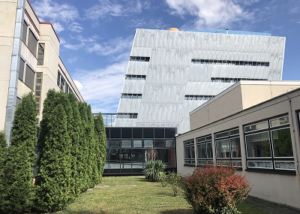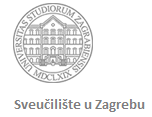Home » Syllabus-Izborni kolegiji-nastava na stranom jeziku-DIPLOMSKI STUDIJ
Category Archives: Syllabus-Izborni kolegiji-nastava na stranom jeziku-DIPLOMSKI STUDIJ
Povijesna sociolingvistika
Naziv kolegije: Povijesna sociolingvistika Nastavnik: dr. sc. Alexander D. Hoyt, viši lektor ECTS bodovi: 5 Jezik: engleski Trajanje: 1 semestar (zimski) Status: izborni kolegij Oblik nastave: 1 sat predavanja, 2 sata seminara Maksimalan broj polaznika: 20 Ciljevi kolegija: Kolegij ima dva cilja. Prvi je cilj upoznati studente s područjem povijesne sociolingvistike, u kojem znanstvenici koji […]
Monolingualism, Bilingualism and Multilingualism
SYLLABUSMonolingualism, Bilingualism and MultilingualismUniversity Course Taught in English (elective course open to both foreign and Croatian students) Instructor: Marta Medved Krajnovic, PhDInstitution: Faculty of Humanities and Social Sciences, Univeresity of Zagreb Course title: MONOLINGUALISM, BILINGUALISM AND MULTILINGUALISM: DEVELOPMENT AND MAINTENANCE Language: EnglishNumber of hours per semester: 30 hours – the course can be organised throughout […]
Language and cognition: from theory to application (SVI)
SYLLABUS Language and cognition: from theory to application University Course Taught in English (elective course open to both foreign and Croatian students) Instructor: Renata Geld, PhD Institution: Faculty of Humanities and Social Sciences, University of Zagreb Course title: Language and cognition: from theory to application Language: English Number of hours per semester: 30 hours ECTS: […]
Povijesna sociolingvistika (arhiva)
Naziv kolegije: Povijesna sociolingvistikaNastavnik: dr. sc. Alexander D. Hoyt, viši lektorECTS bodovi: 5Jezik: engleskiTrajanje: 1 semestar (zimski)Status: izborni kolegijOblik nastave: 1 sat predavanja, 2 sata seminaraMaximalan broj polaznika: 20Ciljevi kolegija: Kolegij ima dva cilja. Prvi je cilj upoznati studente s područjem povijesne sociolingvistike, u kojem znanstvenici koji istražuju povijest pojedinih jezika kombinirajući metode povijesne lingvistike […]



